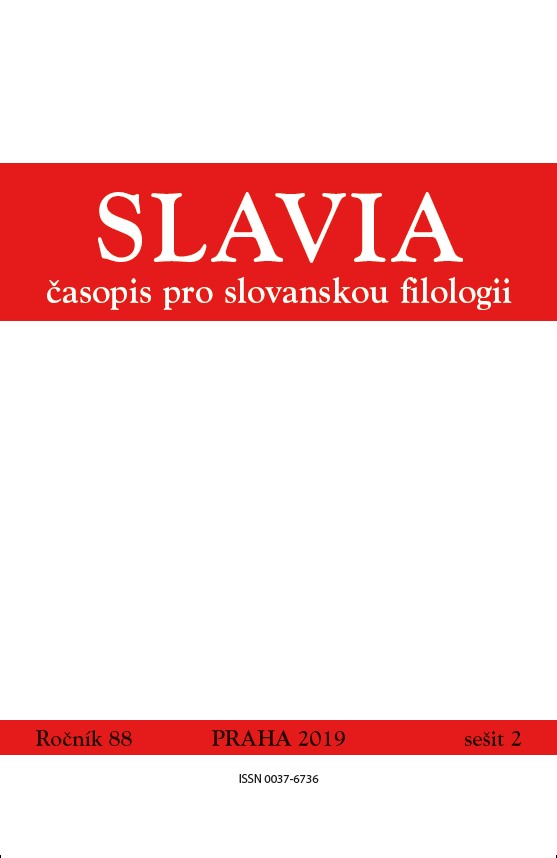Adaptačné prístupy inscenátorov k románovému prototextu v súčasnom slovenskom divadle
Adaptation Approaches of the Inscenators towards Novel Prototext in the Contemporary Slovak Theatre
Author(s): Miran PukanSubject(s): Theatre, Dance, Performing Arts, Slovak Literature
Published by: AV ČR - Akademie věd České republiky - Slovanský ústav and Euroslavica
Keywords: adaptation typology of novels; contemporary Slovak professional theatre; dramaturgic and directorial conception
Summary/Abstract: Dramatization as well as adaptation of the classical epic works for contemporary theatre; usually drama; has its own logic. It is the reaction on confused or mediocre aesthetic value of contemporary national as well as European drama which probably cannot adequately refl ect present-day problems of the addressee. Heterogeneity of adaptation procedures realized by domestic as well as foreign producers; concerning the novel pretext; can be illustrated by fi ve analyses of theatre performances presented in the prestigious professional theatres after the year 2000. There are several reasons for their choice: they mean constitute the theatre stages which represent the artistic top of the Slovak theatre thanks to their production and staging projects and at the same time they have the status of individual institutional form. First one is Slovak National Theatre Bratislava which presented two adaptations of Slovak cult novels – fi rst one from interwar period; Švantner´s Nevesta hôľ (2015); directed by Roman Polák; and second one; contemporary Pišťanek´s Rivers of Babylon (2016); directed by guest director from Slovenia Diego De Brea. However; it was Theatre of Alexander Duchnovič Prešov (DAD); previously called Ukrainian National Theatre until 1900; in which two dramatizations of prestigious Russian novels were presented; namely Goncharov’s Oblomov (2000); directed by Matúš Oľha; a Dostoyevsky’s Idiot (2005); directed by guest British director Jan Willem van den Bosch. Apart from these dramatizations; DAD presented also the adaptation of well-known Grimmelshausen’s baroque novel Dobrodružný Simplicius Simplicissimus under the title Princove halušky alebo Uhorský Simplicissimus (2002) which was directed by Matúš Oľha; too. The choice of these theatre ensembles and their plays was not accidental because both the companies represent cultural theatre spots developing and cultivating national identity (in the fi rst case) and ethnical identity of Ruthenians who live in the Eastern Slovakia and their theatre aesthetics includes many exceptional procedures and progressive development tendencies not only in the context of Slovak professional theatre (in the second case). Solving typological and terminological questions is very complicated and urgent task; apart from other reasons also because of pragmatism (e.g. the question of copyrights). On the basis of long-term research activity concerning adaptations of literary works; theoreticians adopted the view that it is not possible to judge adaptation and dramatization procedures or diff erent author attitudes in general and that it is necessary to specify diff erent ways of treating the literary text in the complicated intersemiotic and intertextual transformational process resulting into autochthonous stage play.
Journal: Slavia - časopis pro slovanskou filologii
- Issue Year: LXXXVIII/2019
- Issue No: 2
- Page Range: 146-161
- Page Count: 16
- Language: Slovak

